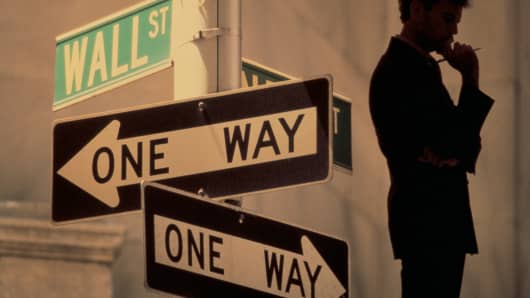Chris Rupkey of Bank of Tokyo-Mitsubishi said the Fed "wrecked the money market and now their actions are wrecking the bond market... As long as they keep doing this it tells the public the economy is still not right in their view. This policy is starting to look like a mistake."
And by a 3-to-2 margin, investors believe that more QE will not lower the unemployment rate, which the Fed has specifically mentioned as a key aim of the program. Investors do, however, believe that QE will be successful at reducing bond yields and mortgage rates, a sign that Wall Street doesn't believe lower interest rates will reduce joblessness.
(Read more:
Bernanke 'Bigger Threat' Than 'Fiscal Cliff': Schiff
)
Marking the first time CNBC has asked the question, Wall Street believes that an unemployment rate of 6.5 percent and an inflation rate of 3.4 percent are the key levels that would prompt the Federal Reserve to halt its asset purchases. But Wall Street, by a slim 49 percent to 45 percent, does not believe the Fed will adopt explicit economic targets. If it does, 75 percent of respondents say it should be inflation compared with just 43 percent saying unemployment.
Markets still look for the Fed to remain on hold through 2015, although there was an increase in the percentage who see the Fed acting to tighten policy in 2014.
Rupkey, however, isn't sure we need to think about the future. He joked, "I think we are all doomed. 'Fiscal cliff' pales in importance against the end of the world forecast by the Mayan calendar. Get your affairs in order, this ship is going down."













